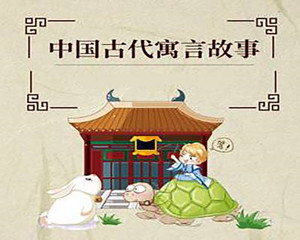古代寓言原是民间口头创作,文学体裁的一种。含有讽喻或明显教训意义的故事。它的结构简短。主人公可以是人,可以是动物,也可以是无生物。多借用比喻手法,使富有教训意义的主题或深刻的道理在简单的故事中体现,而还需要自己去理解,思考,这就是和西方寓言的不同之处。

《古代寓言·笑的一定不错》
瞽者与人同坐。人有所见而笑,瞽者亦笑。或问汝何所见而笑?瞽答曰:“诸君所笑,定然不差,难道是骗我的。”
——《笑赞》
Laugh with Others
A blind man was in the company of others. When his companions saw something funny, they laughed. The blind man laughed, too.
When they asked him why he was laughing, the blind man replied, "Since you laugh, there must be something worth laughing at. Can you be cheating me there?"
Xiao Zan (In Praise of Laughter)
(杨宪益、戴乃迭 译)
更多精品翻译素材,敬请关注可可英语。











